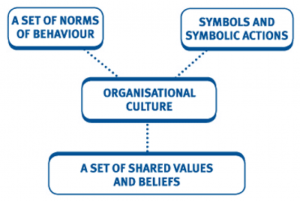Did you know that an organisation’s core values and culture is one of the biggest determinants of its ongoing success?
That culture permeates every aspect of your business and it’s your role as the leader to define it, communicate and engender it.
What’s the culture in your organisation? Does it promote innovation and growth? Or are you stagnating, surrounded by yes men and open to disruption?
As a leader it’s your job to decide on the culture you’ll foster. Which directly leads to how you’ll hire and fire the people around you.
Historically there are 3 types of principle cultures. However, only one of these has enabled the organisation to have long term success.
They are professional, star and commitment templates.
Professional cultures place emphasis on hiring candidates with specific skills. Engineers, accountants, lawyers, IT specialists are prime examples.
Star cultures look for the brightest individuals. They don’t have to be experts in your area, but must have the intellectual capacity to learn what’s required for the job.
And finally, commitment cultures where the critical requirement is candidates fit the values and beliefs the organisation espouses.
Commitment blueprint founders work to build strong emotional bonds between employees and the organisation. They want to create a family atmosphere where people feel they belong, are loyal and love to come to work.
So which culture do you think leads to the greatest long term success? Professional, star or commitment?
If you’d said commitment, you’d be right.
When reviewing the dot com bubble, there were substantial failures of star cultures and professional cultures failed 3 times more often.
Not one organisation with a commitment culture failed.
And when it came to IPOs commitment cultures succeeded 3 times more than Star and 4 times more than Professional cultures.
Having said all that, there is a dark side to commitment cultures. You could find yourself surrounded by people who love consensus and won’t rock the boat. So look out for that.
While you are looking for shared values and beliefs, my recommendation is to foster a think different culture where dissenting ideas and opinions are encouraged in the thinking and planning stages.
Then once plans are set in motion, everyone must get behind them.
Wrapping up, you as the leader define your organisation’s culture. Then you need to communicate and live it.
When working with our clients we help them do just this. So if you want to develop your leadership skills, reach out.
